
Roundtable Report | Germany in Multi-Dimensional Change: Implications for Central Europe
More info 19. 4. 2025
19. 4. 2025
On April 29th, the Brussels Office of EUROPEUM, representing the Think Visegrad Platform, hosted an expert roundtable discussion entitled ‘Germany in multi-dimensional change: implications for Central Europe.’ The event took place at The Library Ambiorix, Square Ambiorix 10, under the Chatham House Rule with a participation of 14 experts. The aim of the discussion was to explore Germany’s ongoing transformation amid overlapping economic, geopolitical, and structural challenges, and their implications for broader European politics.
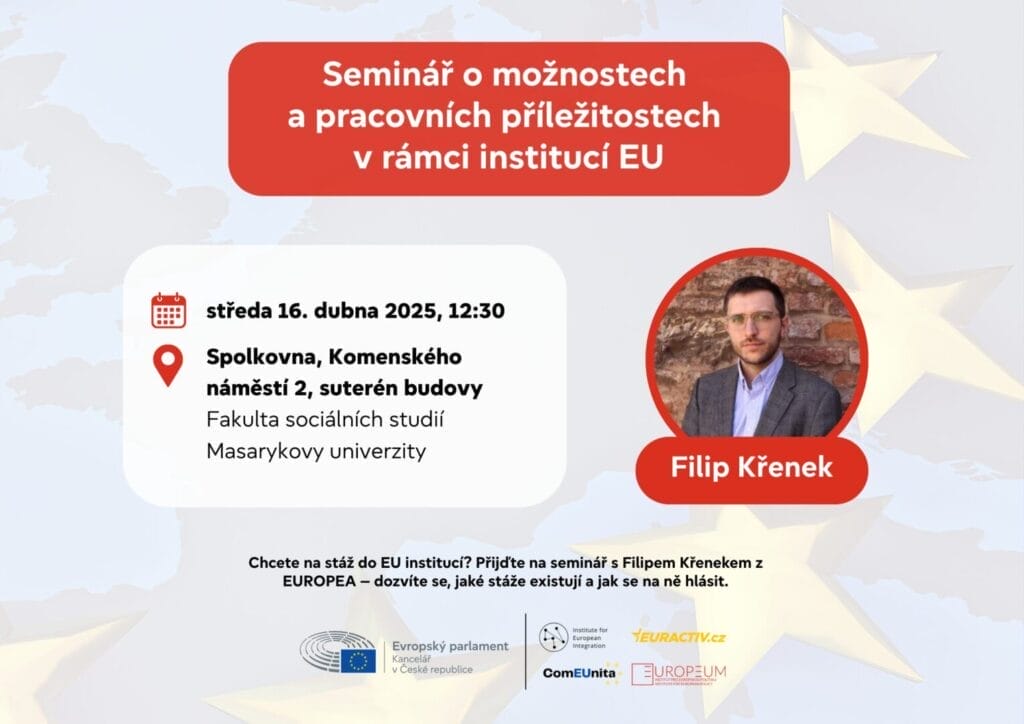
Seminar on opportunities and jobs within the EU institutions
More info 16. 4. 2025
16. 4. 2025
Considering a traineeship in the European Union institutions? Come to a practical seminar where you will learn what types of internships are offered by the European Commission, the Council of the EU, the European Parliament and individual MEPs, how to apply and what the preparation involves.

We are looking for an Event Manager
More info 10. 4. 2025
10. 4. 2025
We are looking for an Event Manager to join our international team in the Prague office. The ideal candidate should have a strong interest in European affairs and will take responsibility for organizing a significant portion of our events for both the general public and expert audiences. They will be expected to bring fresh ideas and input—both in terms of content and organization—and become fully involved in the Institute’s activities. We offer a diverse and meaningful role in a field that shapes public discussion on European issues in the Czech Republic and across Europe.

What's new in the European Parliament? Reflection on the plenary session
More info 7. 4. 2025
7. 4. 2025
We would like to invite you to the next in a series of debates that provide an up-to-date perspective on key topics discussed in the plenary sessions of the European Parliament. The aim of the debates is to offer a clear overview of the decisions taken and their wider impact on the European Union and the Czech Republic. Each debate will provide a space for reflection on major legislative and political steps taken by the European Parliament, direct discussion with MEPs and experts, and an open dialogue with the professional and general public.

Head of the Green Europe Research Program / Senior Research Fellow
More info 2. 4. 2025
2. 4. 2025
EUROPEUM Institute for European Policy is currently looking for a Head of the Green Europe Research Program, focusing on topics such as EU climate policy, industrial decarbonization, clean tech, the competitiveness of the EU and the Czech Republic, the EU’s role as a global player, just transition, climate adaptation, transport poverty, EU funds, cohesion policy, and economic security.
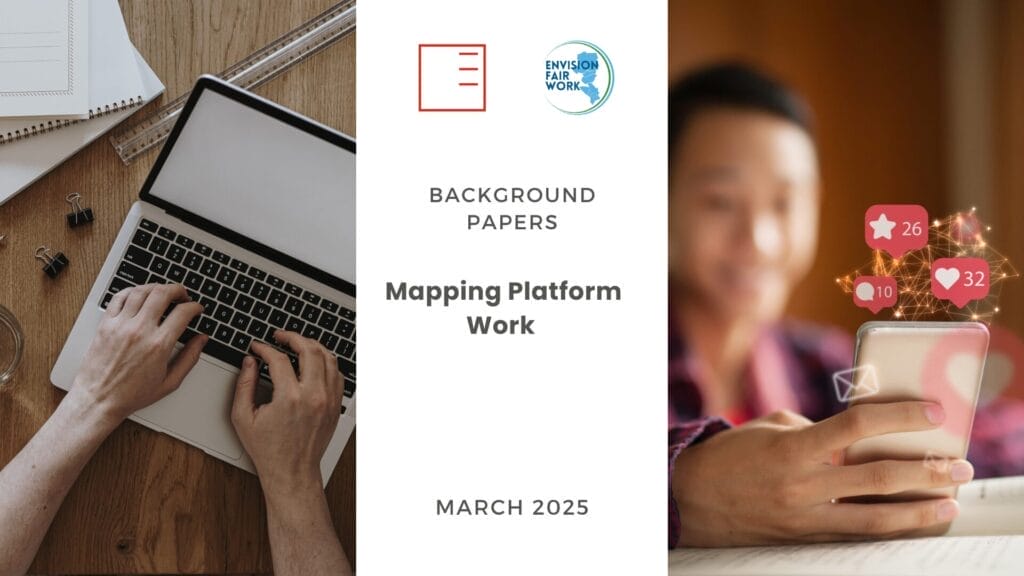
Background papers | Mapping Platform Work
More info 31. 3. 2025
31. 3. 2025
These background papers, produced by EUROPEUM Institute for European Policy as part of the Platform Revolution project, provide an in-depth analysis of the evolving landscape of platform work in North Macedonia, Poland, Serbia, Montenegro, Hungary, Albania and Slovakia. They explore the rapid growth of digital labor platforms, mapping the types, prevalence, and demographic characteristics of platform workers across the countries.
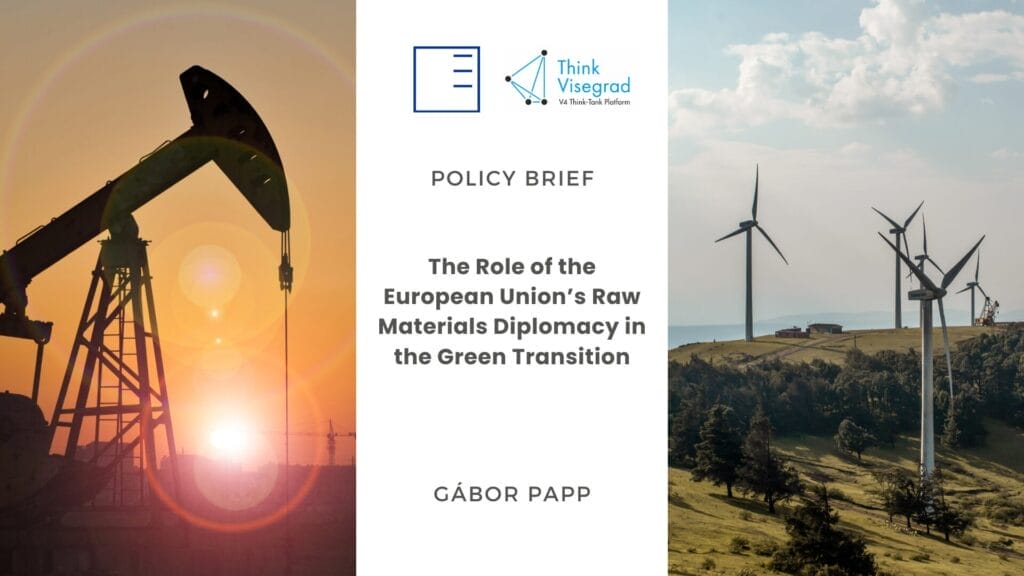
Policy Brief | The Role of the European Union's Raw Materials Diplomacy in the Green Transition
More info 27. 3. 2025
27. 3. 2025
In 2019, the green agenda became the flagship of the European Commission’s politics in the face of the European Green Deal. Five years later, the re-elected Ursula von der Leyen would like to keep this agenda as the number one priority for the next political cycle, expressing this goal also in her political guidelines. Meanwhile, major geopolitical events during the last couple of years have led to an unprecedented interest in the security of energy and raw material supplies. These topics started to gain significant attention during the Covid-19 pandemic, then surged further in the following energy crises, and finally peaked after the outbreak of the Russia-Ukraine war. Even though the question of energy and supply security has global implications and is being discussed globally, Europe was particularly affected by these aforementioned events, writes Gábor Papp, a Research Fellow at the Hungarian Institute of International Affairs, in his policy brief.
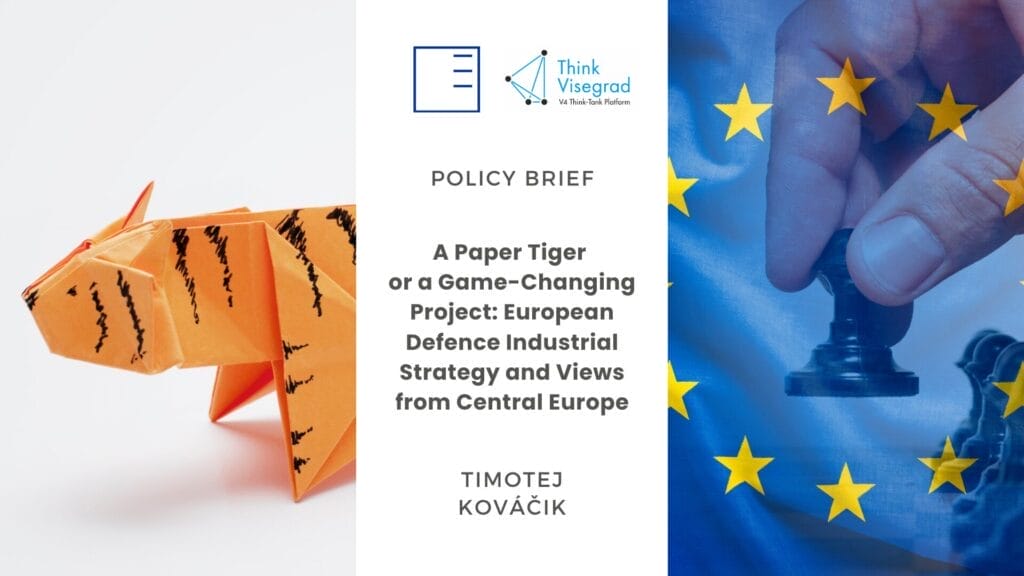
Policy Brief | A Paper Tiger or a Game-Changing Project: European Defence Industrial Strategy and Views from Central Europe
More info 20. 3. 2025
20. 3. 2025
The first-ever European Defence Industrial Strategy (EDIS) was introduced by the European Commission and the High Representative/Vice-President for Foreign Affairs and Security Policy (HR/VP) in March 2024, addressing key challenges in the European defence industry. The strategy aims to increase European defence industrial readiness, encourage Member States to invest in the European defence industry, and reinforce joint European defence procurement and ownership. EU Member States from Central Europe have played a crucial role in supporting Ukraine after the start of the Russian unprovoked and illegal full-scale invasion in February 2022. They also stressed the need to focus the EU's efforts on new initiatives in the field of defence and the defence industry, such as the Act in Support of Ammunition Production or enhancing the European Defence Fund. Writes Timotej Kováčik, Junior Researcher/Analyst focusing on security and defense issues, the EU's Common Foreign and Security Policy, and energy security at the Slovak Foreign Policy Association.
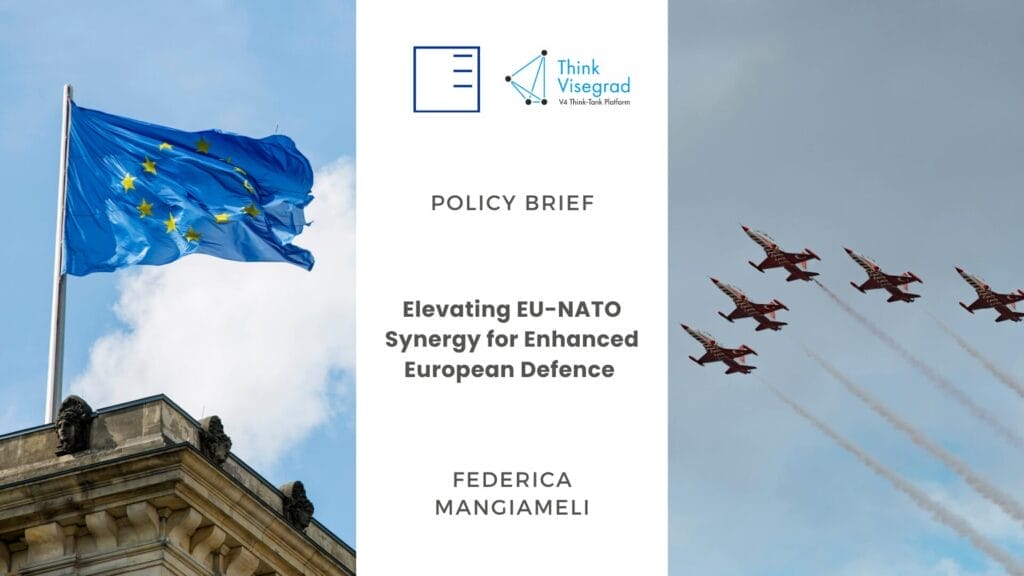
Policy Brief | Elevating EU-NATO Synergy for Enhanced European Defence
More info 20. 3. 2025
20. 3. 2025
For over two decades, there have been numerous attempts to define and frame the relations between the EU and NATO. Three joint declarations and significant steps ahead have been taken and yet, there is no clear vision of how these two organisations should work together more efficiently. The commonly accepted idea of cooperation sees “NATO pulling the strings and the EU pushing the funds” in accordance with their respective nature and scope. Is this unbalanced relation the most suitable strategy to counter current geopolitical threats? No. But can this cooperation be upgraded? Possibly, yet this appears to be easier said than done. Providing the EU with a coherent defence policy and a strong industrial base can be a great additional value for NATO and not just in the extreme case of a possible disengagement of the US. Writes Federica Mangiameli, Programme Manager and Policy Fellow for Defence and Security at GLOBSEC, in her Policy Paper.
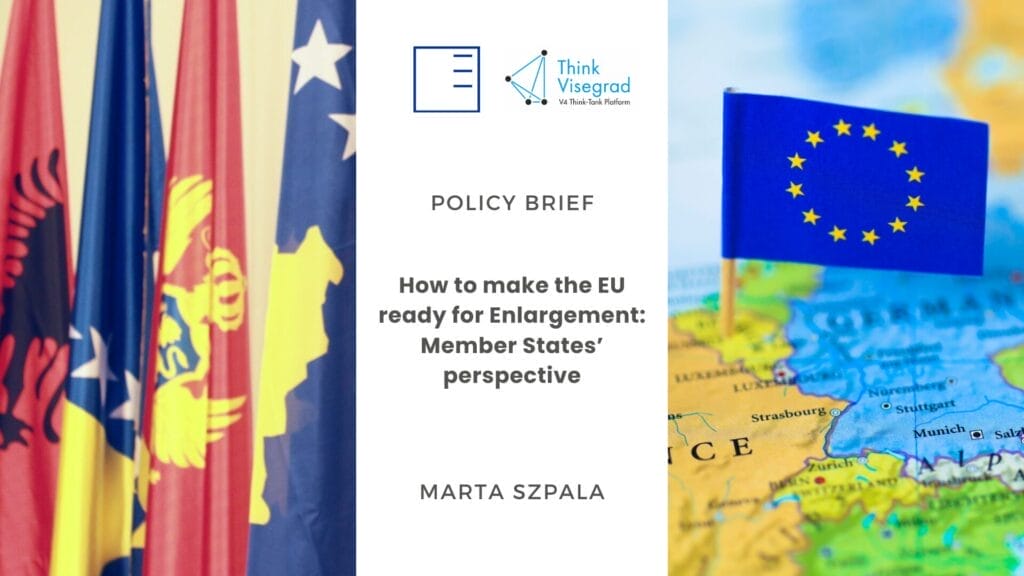
Policy Brief | How to make the EU ready for Enlargement: Member States’ perspective
More info 20. 3. 2025
20. 3. 2025
Russia’s full-scale aggression against Ukraine in February 2022 has brought EU enlargement back as a priority of the EU policy towards the neighbourhood and as a geopolitical tool to ensure peace, stability and prosperity on the entire continent. That resulted in the EU recognising the aspiration of the Associated Trio countries to join the EU and granting membership candidate status to Ukraine and Moldova in 2022 and to Georgia in 2023. In record time, the former two countries also started the EU accession process in June 2024. The accession process of the candidates from the Western Balkans also accelerated. Bosnia and Hercegovina was granted the candidacy status and accession talks with Albania and North Macedonia started in 2022. However, despite the general consensus that enlargement is a geopolitical necessity, the question posed by French President Emmanuel Macron in Bratislava in 2023 – How should we do it? – still remains unanswered. Writes Marta Szpala, a Senior Fellow in the Central European Department at the Center for Eastern Studies.
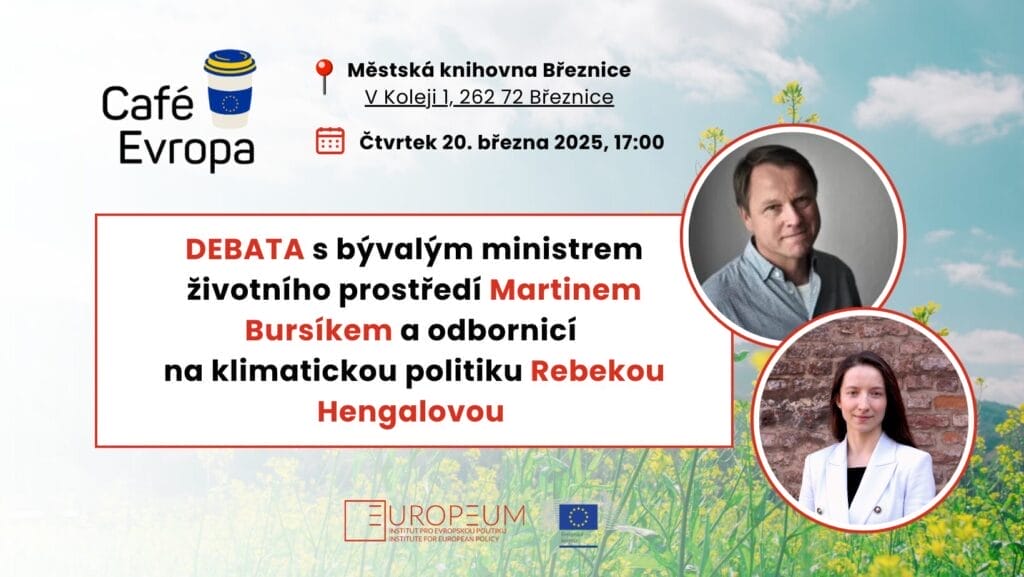
Café Evropa debate: What changes with the climate?
More info 20. 3. 2025
20. 3. 2025
DATE AND PLACE: Thursday, March 20, 5:00 pm, Březnice Municipal Library (V Koleji 1, Březnice) GUESTS: Moderator: Veronika Rajmanová The discussion will be an opportunity for an interesting debate. We look forward to hearing your views! The event is organised in cooperation with the Representation of the European Commission in the Czech Republic. For more […]
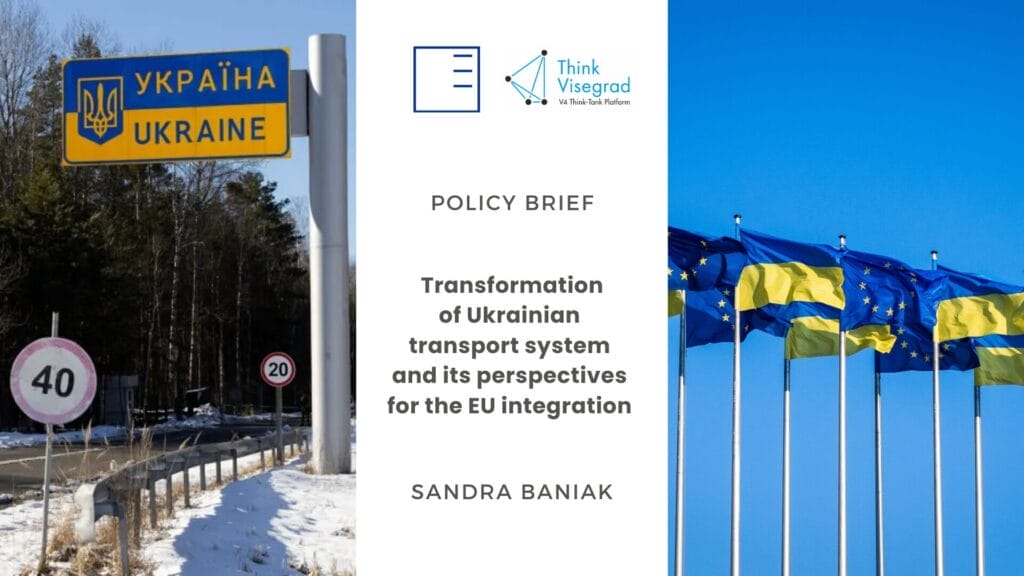
Policy Brief | Transformation of Ukrainian transport system and its perspectives for the EU integration
More info 20. 3. 2025
20. 3. 2025
Russia's full-scale invasion of Ukraine has led to significant changes in the Ukrainian transport sector due to disruptions in supply chains, cargo flows, and damage of the country’s infrastructure. The Ukrainian transport system has undergone significant transformations. The country's borders with Russia and Belarus and its airspace have been closed. In the first months of the full-scale war, the temporary blockage on the operation of Black Sea ports forced Ukraine to develop land transport corridors to the EU countries and neighboring Moldova to enable both export and import of goods needed for the economy. Despite the ongoing war, Ukraine has accelerated a long-planned reform of the country's transport system to adapt its infrastructure to the EU standards and integrate it with the European transport network. Writes Sandra Baniak, a Research Fellow at the Centre for Eastern Studies in the Connectivity and Regional Integration Programme.